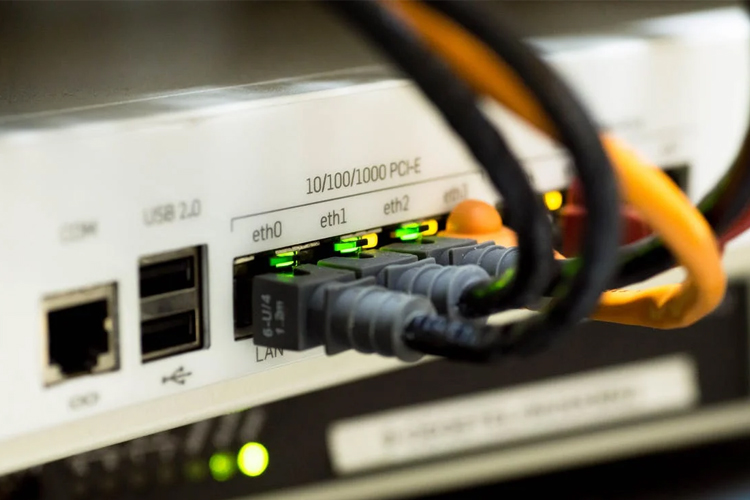Internet Options for Your Address: How to Find the Best Provider and Plan
Internet options are diverse and can significantly impact your daily contentment. Understanding your internet needs and available plans is vital.

Internet Options for Your Address: How to Find the Best Provider and Plan
Selecting your internet service provider is akin to choosing a life partner in the digital age; both decisions profoundly impact your day-to-day contentment.
Internet options are diverse and can significantly impact your daily contentment. Understanding your internet needs and available plans is vital.
Speed, reliability, and cost significantly influence our online experience.
Before embarking on your journey to find the perfect internet match, consider how your digital lifestyle aligns with the services available.
Understanding Your Internet Needs
Every online activity from streaming to telecommuting consumes data at varying rates. Gauge your daily usage to ensure your plan meets your demands.
To optimize your internet service, understand key terms like bandwidth, which is the volume of data transmitted per second. High bandwidth is essential for seamless streaming or gaming.
When evaluating plans, consider the speed necessary for your activities. For instance, teleconferencing requires stable and fast connections to prevent interruptions.
Also, be aware of data caps, which limit the amount of data you can use monthly. Exceeding these limits can incur additional fees or reduced speeds.
Remember, reliability is just as crucial as speed. Consistent service is vital for uninterrupted work and leisure activities online.
Assessing Your Internet Usage
Every household's digital habits are distinct—ranging from basic browsing to high-definition video conferencing. Recognizing these patterns is fundamental in selecting the right plan.
For avid gamers or frequent streamers, high-speed internet with generous—or no—data caps is imperative. Lower-tier speeds could hamper your online experience, causing frustration and disruptions.
Conversely, occasional users who primarily use the internet for email or web browsing may require far less bandwidth, potentially lowering monthly costs.
Deciphering Speed and Bandwidth
The terms 'speed' and 'bandwidth' are foundational to understanding internet service capabilities but are mistakenly used interchangeably. Speed refers to how quickly data is transmitted, while bandwidth relates to the volume of data that can be transferred at one time.
Determining the right combination of speed and bandwidth hinges on users' digital behaviors and needs—a critical step to ensuring seamless online experiences. Streaming in 4K, for example, calls for higher speed and more bandwidth than browsing text-based websites.
The average household now requires at least 25 Mbps to efficiently handle multiple devices.
When assessing suitable plans, factor in both speed for direct task performance and bandwidth that accommodates all connected devices. Disregarding this balance can lead to bottlenecks and frustration, undermining the efficiency of your digital ecosystem.
Data Caps and Their Impact
Data caps are a critical factor that can influence the overall utility of an internet service plan. They delineate the maximum amount of data you are allowed to download or upload within a billing cycle.
In today's digital age, where streaming, telecommuting, and cloud-based services are the norm, surpassing data limits can result in additional charges or severely throttled internet speeds. Providers argue that caps are necessary to manage network congestion, but consumers often view them as a limitation on their online freedom.
Thus, it's essential to evaluate not just the presence of data caps, but also their size relative to your usage patterns. Providers offering plans with higher or no data caps may be more appealing to heavy internet users who stream content in high definition, engage in online gaming, or work from home.
Given the varying impact of data caps, selecting an internet plan requires a keen understanding of your data needs. Keep in mind the potential overage fees and the inconvenience of reduced speeds should you exceed your allotted data.
Armed with this knowledge, you can avoid unwelcome surprises and choose a plan that aligns with your internet consumption, ensuring a seamless online experience.
Locating Providers by Address
The first step to connecting your home to the world is pinpointing the internet providers that service your specific location. Different regions can have varying levels of provider diversity, so it's crucial to start with a location-based search. Tools designed to locate internet service options by address play a pivotal role in narrowing down your potential providers.
Upon entering your address into these tools, you will be presented with a list of ISPs that serve your area. This simplifies the process considerably, as it filters out providers that are not relevant to your location. With this curated list in hand, you can then progress to evaluating the plans each ISP offers, and how they align with your internet needs and expectations, guiding you closer to making an informed choice.
How can I get internet without cable or phone line?
If you're wondering how to get internet without a cable or phone line, there are actually several options available to you. In this digital age, it's possible to access the internet without relying on traditional wired connections.
One option is to use mobile broadband, which utilizes cellular networks to provide internet access. With a mobile data plan, you can connect to the internet using your smartphone, tablet, or a dedicated mobile hotspot device. This allows you to have internet access wherever there is cellular coverage.
Another option is to consider satellite internet. Satellite internet uses satellites in space to transmit and receive data, eliminating the need for cables or phone lines. This can be a good solution for those in rural or remote areas where traditional internet infrastructure may be lacking.
Additionally, some service providers offer fixed wireless internet. This involves using radio signals to establish a connection between your location and a nearby base station. This technology is similar to how your smartphone connects to a cellular tower, but on a larger scale to serve a whole community or neighborhood.
Lastly, you can explore the possibility of using public Wi-Fi networks. Many public places such as cafes, libraries, and shopping centers offer free Wi-Fi access. While this option may not provide the same level of convenience or reliability as a dedicated internet connection, it can be a temporary solution or a way to save on costs.
Remember to consider factors such as coverage, speed, and data limits when choosing an alternative to cable or phone line internet. Each option has its own advantages and limitations, so determine which one best fits your needs before making a decision.
Who is the best internet to go with?
When it comes to choosing the best internet provider, there are a few factors you should consider. First, think about your location and the options available in your area. Some providers may offer faster speeds or more reliable service depending on where you live.
Next, consider your needs. Are you a heavy internet user who streams a lot of content or plays online games? If so, you'll want to look for a provider that offers high-speed plans with low latency. On the other hand, if you primarily use the internet for light browsing and email, a basic plan may be sufficient.
It's also important to consider customer reviews and satisfaction ratings. Look for providers that have a good reputation for customer service and reliability. Reading reviews from other customers can give you a better idea of what to expect.
Lastly, compare prices and packages. Many providers offer bundle deals that include internet, cable TV, and phone services. Take the time to compare different plans and see which one offers the best value for your money.
By considering your location, needs, customer reviews, and prices, you can make an informed decision about which internet provider is the best fit for you. Remember, what might be the best option for one person may not be the best for someone else, so take the time to find the right fit for your specific needs.
What is the best internet type for home?
Choosing the best internet type for your home can be a daunting task. With so many options available, it's important to understand the different types of internet connections and their strengths.
One popular option is cable internet. This type of connection uses the same coaxial cables that deliver cable TV to your home. Cable internet provides fast speeds and is widely available in urban and suburban areas. It's a reliable choice for households that require high-speed internet for streaming, gaming, and multiple devices.
Another option to consider is fiber optic internet. Fiber optic cables use light to transmit data, resulting in incredibly fast and reliable connections. With fiber optic internet, you can enjoy symmetrical upload and download speeds, making it ideal for activities like video conferencing, online gaming, and large file transfers. While not as widely available as cable, fiber optic internet is expanding its coverage.
DSL (Digital Subscriber Line) internet is another option to consider, especially if you live in a rural or remote area. DSL utilizes existing telephone lines to deliver internet connectivity to your home. While DSL speeds may not match cable or fiber, it can still provide a reliable connection for basic internet browsing, email, and streaming.
Satellite internet is an option for those living in areas where other types of internet are not available. This type of connection relies on satellites to transmit and receive data. While satellite internet can provide coverage in remote locations, it typically has slower speeds and higher latency compared to other types of internet.
Ultimately, the best internet type for your home will depend on your specific needs and location. Consider factors such as internet speed requirements, availability in your area, and the number of devices that will be connected. Researching and comparing different internet providers and their offerings can help you make an informed decision and find the best internet type for your home.
ISP Locator Tools
Navigating the myriad of internet options starts with pinpointing which providers are within reach. Locator tools adeptly map out available ISPs by your home address.
The digital realm offers an array of ISP locator tools, each tailored to streamline your search. Websites like BroadbandNow and the FCC's National Broadband Map are prime examples, offering comprehensive coverage overviews.
These resources empower you with detailed insight into the types of internet services—be it fiber, cable, DSL, or satellite—that adorn your locality. They also provide crucial information about each provider such as internet speeds, data plans, and pricing structures.
Armed with this intelligence, consumers can effortlessly eliminate ISPs that fall short in offerings or service regions. This filters your options to the most viable contenders, ensuring a focused selection process.
Ultimately, ISP locator tools are invaluable allies. They demystify the search for suitable internet service providers, setting the stage for a deeper dive into plan comparison.
Local Community Insights
Your neighbors can be a goldmine of knowledge when exploring internet options.
- Seek out neighborhood Facebook groups or Nextdoor.com.
- Explore community message boards or local forums.
- Check with a homeowners' association for preferred providers.
- Visit local businesses and inquire about their internet service experiences.
- Talk to friends and family in the area about their internet reliability and satisfaction.
Ground-level feedback helps identify the most reliable providers in your vicinity.
Real-world experiences from within the community often highlight issues you won't find in a brochure.
Gather these insights to form a clearer picture of the service you can expect.
Evaluating Internet Plans
When standing at the crossroads of numerous internet plans, approaching the evaluation process systematically can turn a daunting task into a manageable one. Start by comparing the bandwidth and speeds each plan offers, ensuring they align with your daily online needs—be it for uninterrupted video conferencing or seamless 4K streaming. Investigate plan specifics such as data caps which can throttle your internet speed or incur additional charges if surpassed. Furthermore, consider the nature of promotional rates; understanding when discounted periods end could save you from unexpected bill increases. It's also prudent to factor in installation costs, equipment rental fees, and the protocol for technical support should you encounter issues down the line. By parsing these details with a fine-tooth comb, you'll position yourself to select a plan that harmonizes cost-efficiency with unwavering performance.
Analyzing Costs and Contracts
Delving into the financials of potential internet plans is essential; scrutinize monthly charges, installation fees, and any undisclosed costs. Assess these figures against your budgetary constraints to ensure a sustainable choice.
Contracts play a pivotal role in your internet service experience. Review the term length and any early termination fees that may apply.
When studying a contract, pinpoint the details about rate hikes post-promotional periods, particularly how they'll impact your monthly outlays. Gauge the fairness of the contract by comparing it with competitors' offerings, looking out for clauses that spell out terms of service changes or additional fees.
Long contracts could mean lower rates, yet flexibility may suffer. Assess whether the provider's plan corresponds with future changes in your life or internet usage. Before signing, a thorough examination of the contract can prevent surprises, cementing a service package that deftly balances needs, costs, and adaptability.
Speeds vs. Needs
In exploring internet plans, it's essential to align your speed requirements with your daily activities. Whether it's streaming in high definition, gaming with minimal lag, or attending video conferences, each activity demands a specific bandwidth to operate smoothly. This balance is crucial to avoid paying for unnecessary excess or suffering from insufficient speeds.
Now consider the magnitude of your household's internet consumption. One person's usage can differ vastly from a multi-user, device-rich environment. Calculating the cumulative demand is the first step to selecting the right speed tier.
Moreover, your internet speed choice should mirror your anticipated usage patterns, adapting to both peak times (like evening video streaming) and quieter periods. This flexibility ensures you’re not overcommitting financially for bandwidth that remains unused during off-peak hours.
While high speeds are attractive, they're only beneficial if they match your actual internet usage. Opting for the highest available speed without assessing need can lead to unnecessary expense, missing the sweet spot of price and performance.
The goal is to find a plan where speed and usage needs intersect, creating a value proposition that guarantees smooth internet performance without overbearing costs. It often means choosing an internet speed tier that reflects your most demanding online activities while still fitting within your budget.
Ultimately, your choice should address today's needs while anticipating tomorrow's changes. Look for plans that provide the flexibility to adjust speed options as your household's internet demands evolve, ensuring a robust and adaptable connection for the future.
Additional Services and Bundling Options
Many internet service providers offer bundles that include cable TV, home phone, or mobile services alongside internet plans, creating a unified package with a single bill. Access to exclusive channels, premium content, and additional features may enhance your home entertainment experience, potentially at a discounted rate.
Bundles can streamline billing and offer cost savings compared to individual services, but they also necessitate careful consideration. Ensure that the combined package truly aligns with your consumption habits and that you're not subsidizing services you rarely use.
Conversely, unbundled services allow for greater flexibility and customization of your subscriptions, tailoring each service to your specific needs without being tethered to a bundle. It is important to compare both options, evaluating the standalone value against the perceived benefits of a comprehensive package.
When considering bundles, be aware of promotional periods and what costs will apply once these expire. Long-term expenses can quickly surpass the initial savings if prices spike significantly post-promotion.
Before committing to a bundle, scrutinize the contract for any exit penalties should you decide to change or drop services later on. Knowing the termination terms is crucial to avoid unexpected costs if your circumstances or preferences shift.
Lastly, assess how well a provider's package meets your family's entertainment and communication demands. Balanced against individual service costs, bundles can represent compelling value while simplifying household management.
Investigating Provider Performance
Prior to making a commitment, it's advisable to rigorously examine each potential provider's historical performance. This involves more than just scanning advertised speeds or package deals. Seek out quantifiable data on uptime consistency, average speed deliverability, and network latency. These metrics offer a more complete picture of what your daily internet experience might look like, ensuring you choose a provider that aligns with your expectations.
As you delve into research, look for independent assessments such as annual reports or consumer satisfaction surveys which can shed light on a provider's service record. These documents are akin to a "report card" that reflect past performance, offering a snapshot of an ISP's reliability. Pay special attention to trends over time, as consistent improvements or declines can signal the direction of future service. This thorough analysis allows you to not just anticipate, but also avoid potential disruptions to your online activities.
Customer Reviews and Reliability
Customer reviews are a goldmine of information about an ISP's real-world performance. Transparency is invaluable, with peer reviews revealing the truth behind those glowing promises. They offer a glimpse into the everyday user experience that could soon be yours.
When perusing these reviews, don't skim the surface; dig deeper for consistent themes. Patterns of connectivity issues, difficulties with customer service, or billing disputes are red flags. Meanwhile, repeated praise for reliability or support can be green lights. Remember to weigh the recency of reviews – technology and service can evolve.
Independent platforms like Better Business Bureau and Trustpilot provide a broader perspective. These sites collate user feedback and typically offer a rating system, making it easier to gauge overall satisfaction. Look beyond the star rating and read individual stories to understand the context of each rating.
Filter noise from the signal by focusing on reviews from similar users with comparable needs. If you're a heavy gamer or stream home cinema, find reviews from users with parallel habits. This specificity can better predict the likelihood that an ISP can handle your internet demands.
Ultimately, reliability is not promised, it's proven through the test of time and use. Trust in historical data, but give weight to current user experiences to make the most informed choice.
Support and Service Quality
The human touch makes a significant difference, especially when you encounter issues that require customer support. How a provider responds to service disruptions, technical problems, or billing inquiries is a true test of their commitment to customer satisfaction.
Proactive communication is one hallmark of outstanding service, as is the availability of support channels. Look for Internet Service Providers (ISPs) that offer comprehensive help through phone, chat, and email, and check whether they have a sound reputation for resolving issues promptly. A provider that invests in training customer service teams well often reflects a culture that values subscribers and prioritizes their needs.
Consider also the providers' support hours and the language services available. Are they offering 24/7 support, or are there specific hours of operation? Can they assist in your preferred language? These particulars can make a world of difference in how effectively and seamlessly you can address any issues with your service.
In summary, evaluating service quality transcends mere statistics and requires assessing human factors and responsiveness. Consider how easy it is to get in touch with customer service, the professionalism of the support staff, and the efficiency of the resolution process. These elements collectively influence the quality of your experience with the provider and can be decisive in choosing a service that supports your digital lifestyle with minimal disruptions.
Making the Decision
When all the data's been reviewed, trust becomes a pivotal point in selecting your internet provider. Consider if the testimonials and service history align with your expectations for reliability and support.
Establishing a direct line of communication with current customers can shed light on actual service quality. Ask neighbors or local internet forums about their firsthand experiences with the speed and stability of the connection they're getting.
Remember to scrutinize the service-level agreement for clauses that could affect your satisfaction. Look for terms on service guarantees, remedies for outages, and specific criteria for any offered speed boosts or bonuses.
Evaluate the totality of your research, weighing the tangible benefits against long-term commitments. Think about potential advancements in technology that could change service offerings and how your chosen plan might adapt or change.
End your deliberation by verifying the provider's installation timeline and support structure. These final checks ensure a smooth transition to your new internet service with minimal disruption to your daily life.
Conclusion
In this digital era, pinpointing the ideal internet provider for your residence is crucial. A meticulous approach ensures that you secure a service that's both reliable and aligned with your needs, empowering the seamless integration of technology into your day-to-day activities.
Don't overlook the agility of a provider to adapt to evolving tech landscapes. Future-proofing your internet choice is not just a convenience—it's a necessity.
An informed choice merges in-depth research with your personal demands, bridging the gap between mere connectivity and a superb online experience. Precision in this selection phase can preserve countless hours and dollars spent on service adjustments or provider switches further down the line.
Deciding on an internet service provider marks the beginning, not the end, of managing your digital life. With a firm grasp of provider landscapes and the nuances of varying plans, you’re well-equipped to make a strategic choice. Go forth with confidence, knowing that your homework today lays the groundwork for a streamlined, connected tomorrow. Engage, ask questions, be curious – remember, the “fast lane” of the internet begins with a single informed step.




